Business & Management
Makerere Presents Nepal’s Community Forest Management Model to Government Agencies
Published
2 years agoon
By
Jane Anyango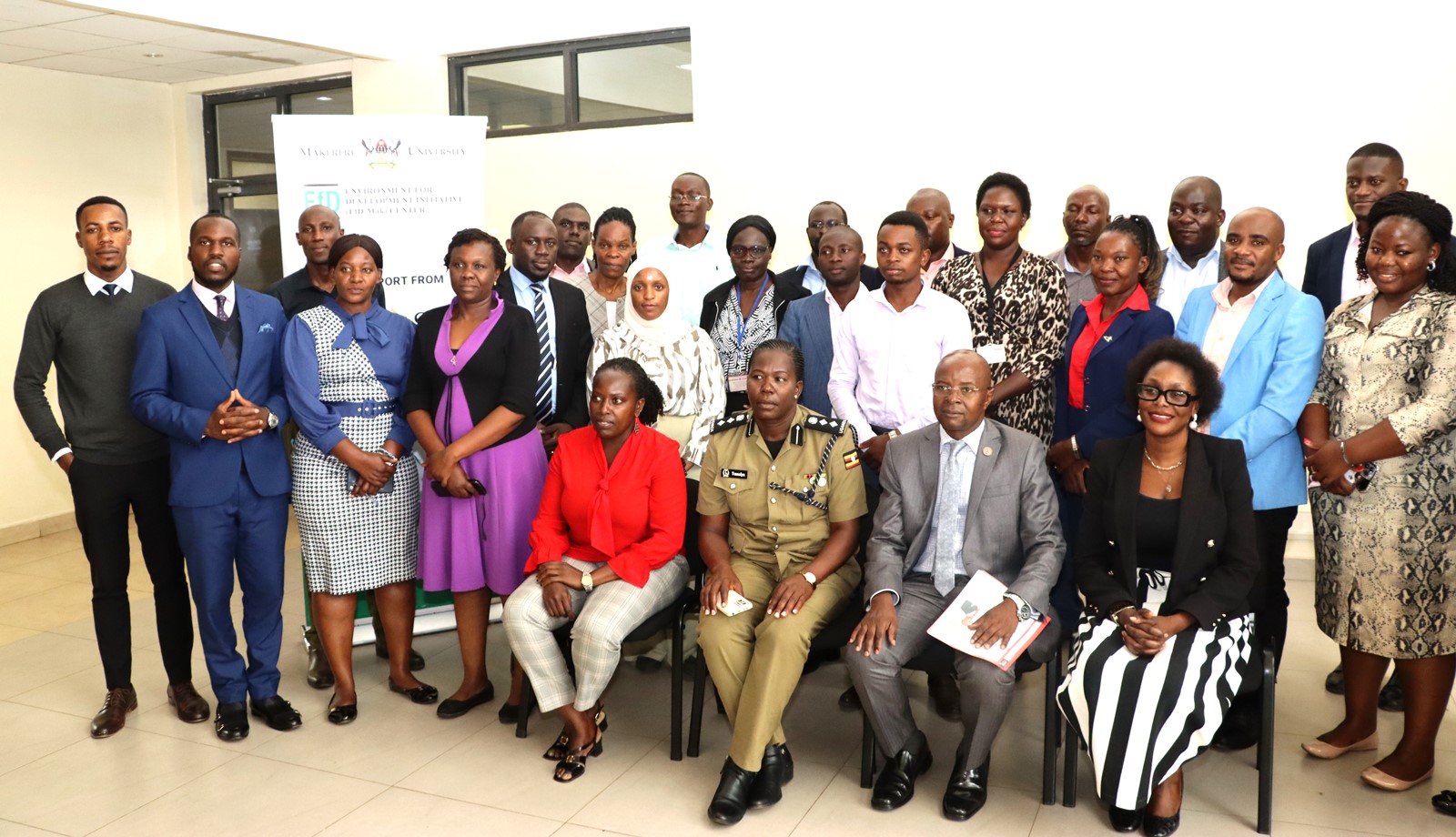
In 2023, the Ugandan team comprising Dr. Peter Babyenda of Makerere University EfD-Mak Centre, Christine Mugyenyi and Rukundo Tom from the National Forest Authority went to Nepal to study the Community Forest Management Model. The study tour was funded by EfD Global Hub and the National forestry Authority Uganda.
The study tour was one of the activities of EfD Forest Collaborative Peer Learning Project on Community Forestry aimed at deepening the understanding on community-based forestry management and sharing ideas and experiences regarding forestry among the participant countries.
This study was timely given the current efforts by Ugandan government to increase the forest cover to 24% by 2040. Through community forest management, the people of Nepal have been able to increase their forest cover to 45% from 29% in 1992.
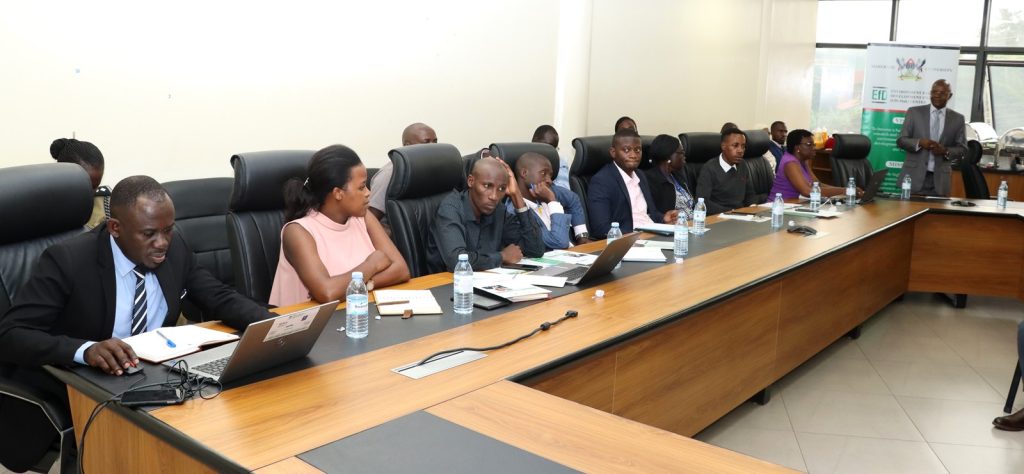
As such, Nepal provides a practical example of how the community can be empowered to manage forests and significantly contribute to the general growth of forest cover in the county. The leadership of the forest user groups also act as training ground for the national leadership and as a result, the national leadership also participates in the sustainable utilization of forests.
Nepal presents an interesting scenario demystifying practices in many other countries where local people are seen as enemies of forests. Through Community Forest User Groups (CFUG), Nepal’s model demonstrates how local people, are at the forefront of protecting forests in Nepal.
The experiences from Nepal should act as the guide to successful forest management in other countries including Uganda. In addition, the study tour was informative with vast knowledge attained from different stakeholders on implementation of community forestry.
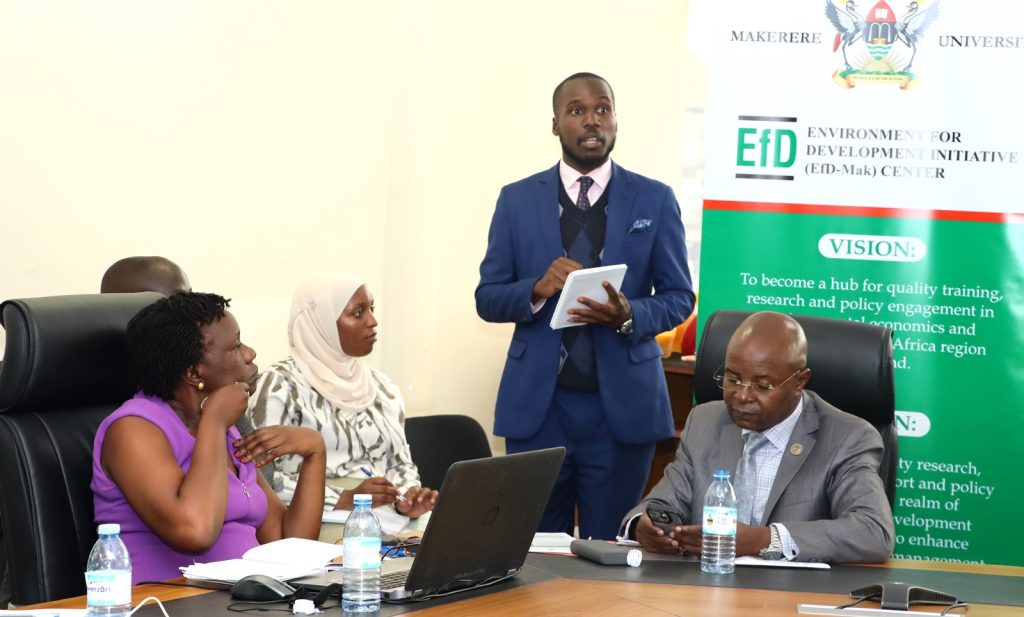
The study tour involved meetings with the different stakeholders, field visits in some of the community forests and experiencing the Nepalese culture through visiting religious and cultural sites. The 5 days program was under the guidance of the Forest Action – Nepal and coordinated by Professor Randy.
The tour started with the visit to Kalopani Community Forestry User Group (CFUG), which is in a mountainous site in Kavre District. The team visited a second CFUG on the way to our meeting with the Kavre Divisional Forestry Office, which has jurisdiction over Kalopani CFUG. The team also visited Kavre Divisional Forestry Office and held discussions with the Dean of the Tribhuvan University Institute of Forestry.
EfD-Mak centers disseminates study findings to government agencies
Research fellows from EfD-Mak centre from Makerere University on 27th February 2024, went to the Ministry of Water and Environment to disseminate information on lessons learnt from Nepal’s community forest management.
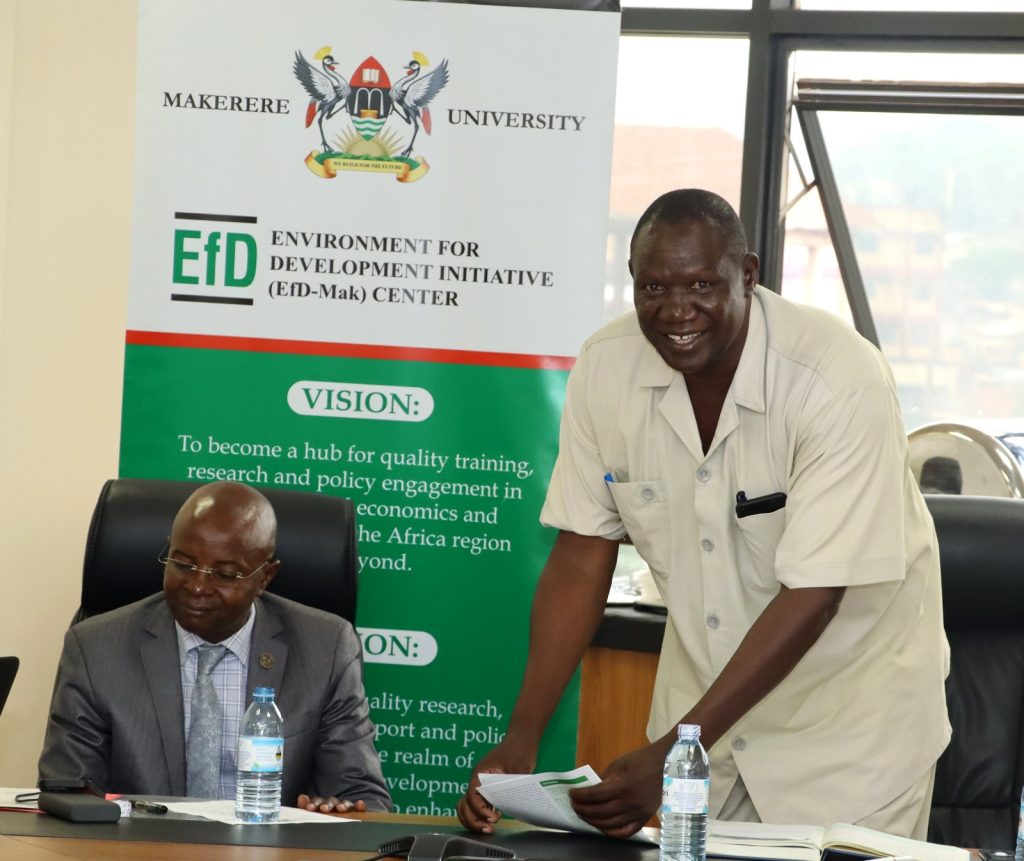
The workshop hosted by the ministry’s headquarters in Luzira, was attended by over 30 forestry officials from government ministries, departments and agencies including the National forest Authority, Uganda world life Authority and National Environmental Management Authority.
While officially opening the workshop on behalf of the Permanent Secretary Ministry of Water and Environment, The Commissioner, Environment Sector Support Services Stephen Mugabi hailed the EfD Mak center for the continued partnership that was initiated with the ministry.
Noting that the mandate of managing the environment lies within the ministry, Mugabi said it was the right decision that the centre decided to link up with the ministry.
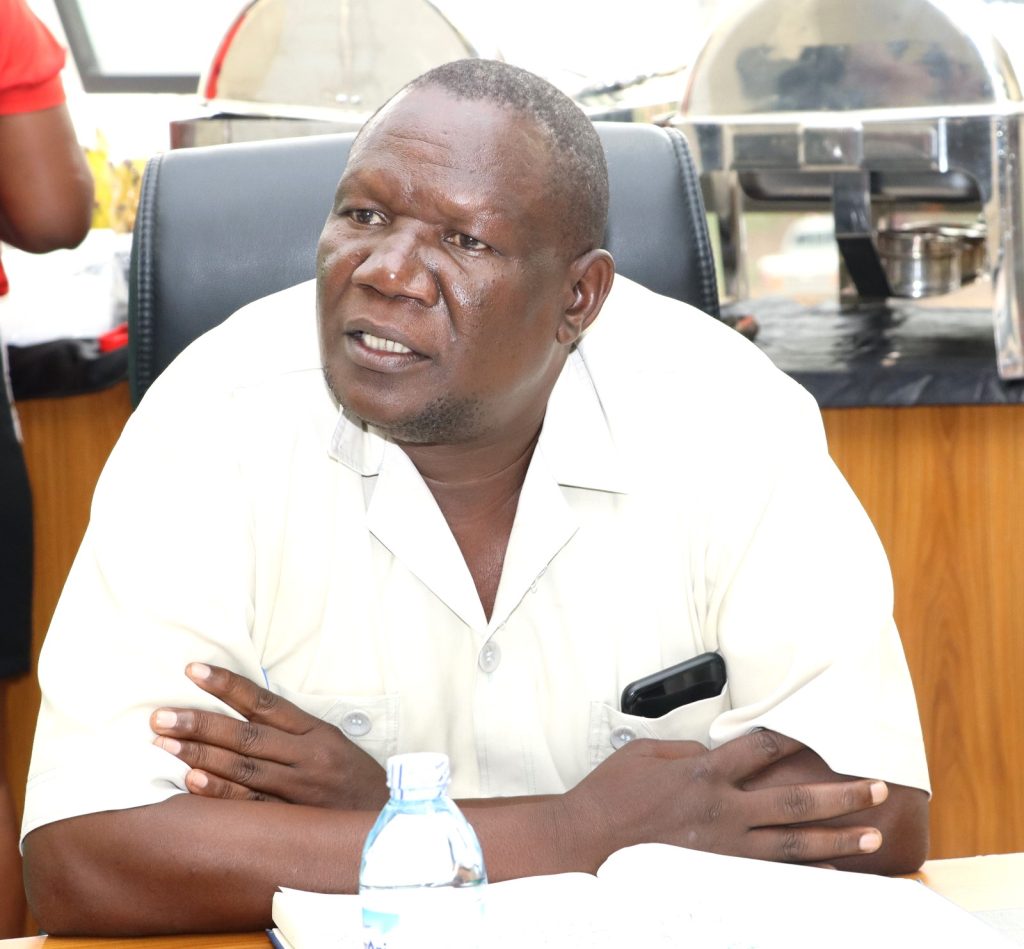
“When you generate information and you don’t share it, and archive it, it will not be useful. Once information is disseminated and gets to the stakeholders, they get knowledge that is then transformed into action. And the moment knowledge is transformed into action, then we see the knowledge changing livelihoods of communities”, He explained adding that:
“Today you have been recruited as ambassadors of the EfD-Mak Centre. You are receiving information how people in Nepal manage their forests and we expect you to disseminate it further to the people whom you live with.” Mugabi emphasised
Mugabi expressed the need for participants to understand the definitions of a community forest away from the standard definition of a forest on grounds that the way the community understands the forest is far different and has many values attached.
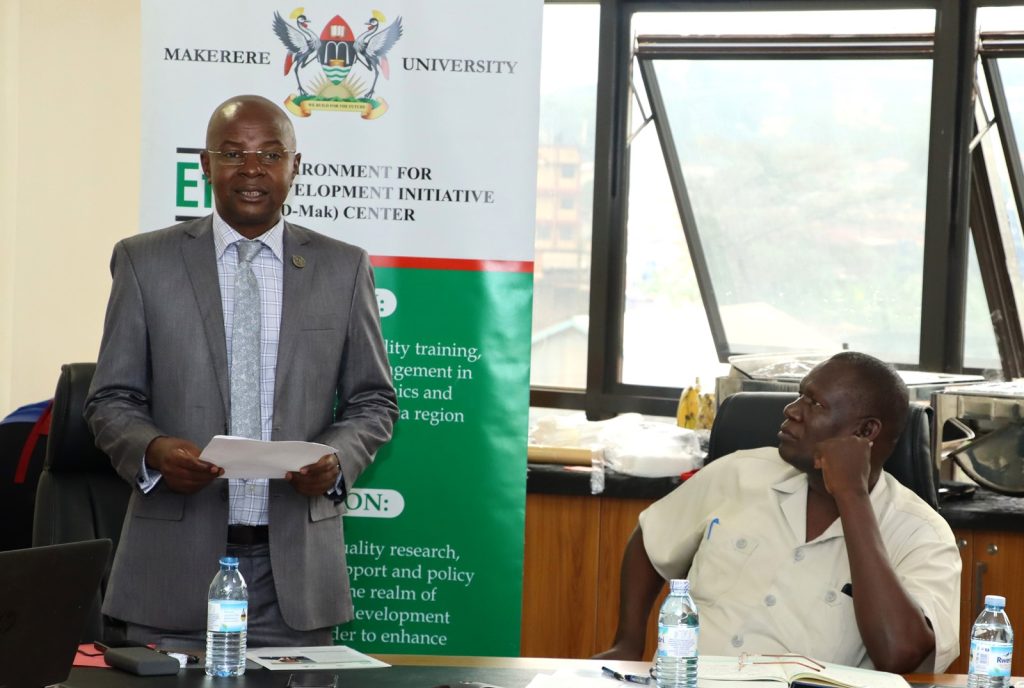
The Director EfD-Mak centre who is also Director, Directorate of Makerere University Graduate Research and Training Prof. Edward Bbaale appreciated the EfD Global hub funded by Sida, for sponsoring the Peer Learning Project for Community Forestry for policy makers and researchers, with a visit to Nepal.
“Today marks a significant moment as our colleagues share insights from their visit to Nepal’s community forest model, a success story empowering communities to manage nearby forests sustainably.
Nepal’s model granting legal rights to use and manage forest resources, stand as an exemplary solution against deforestation – a lesson we find particularly relevant given Uganda’s challenges”, Bbaale said.
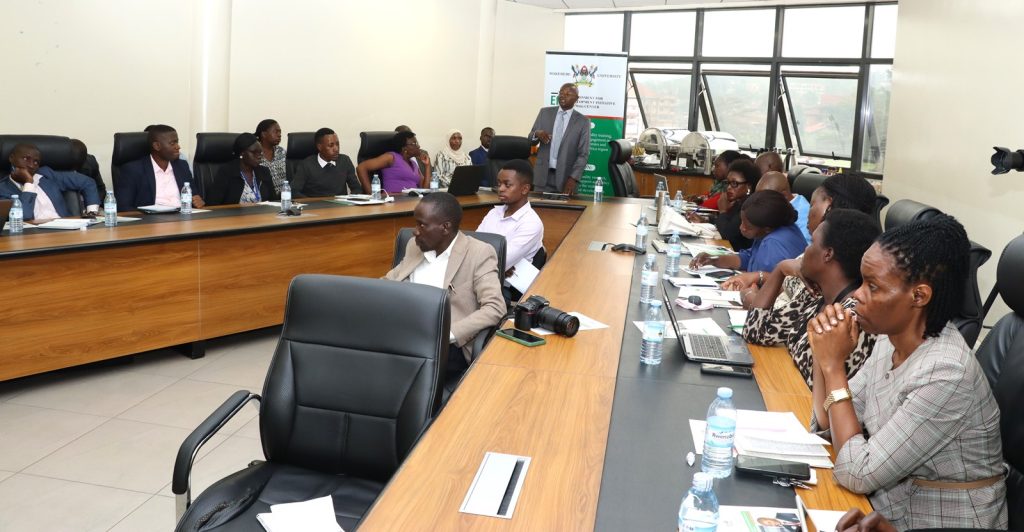
Prof. Bbaale also noted that with 70% of the total forest cover under private land and the prevalent use of firewood and charcoal, Uganda faces alarming rates of forest losses.
“The presentation today is timely source of inspiration for policy makers and researchers, demonstrating the positive impact of involving local communities in decision making and forest management, addressing both environmental concerns and social inequalities,” Bbaale stressed.
He extended gratitude to the Ministry of Water and Environment for hosting the engagement at their headquarters and commended the enduring collaboration between EfD-Mak Centre and the Ministry.
Bbale also extended appreciation to the ministry and government for supporting the Inclusive Green Economy program for senior public servants. The Director, Stephen Mugabi represents the Ministry on the EfD-Mak Advisory Committee. The ministry appointed Commissioner Moreen Anino on the first cohort of the IGE fellows.
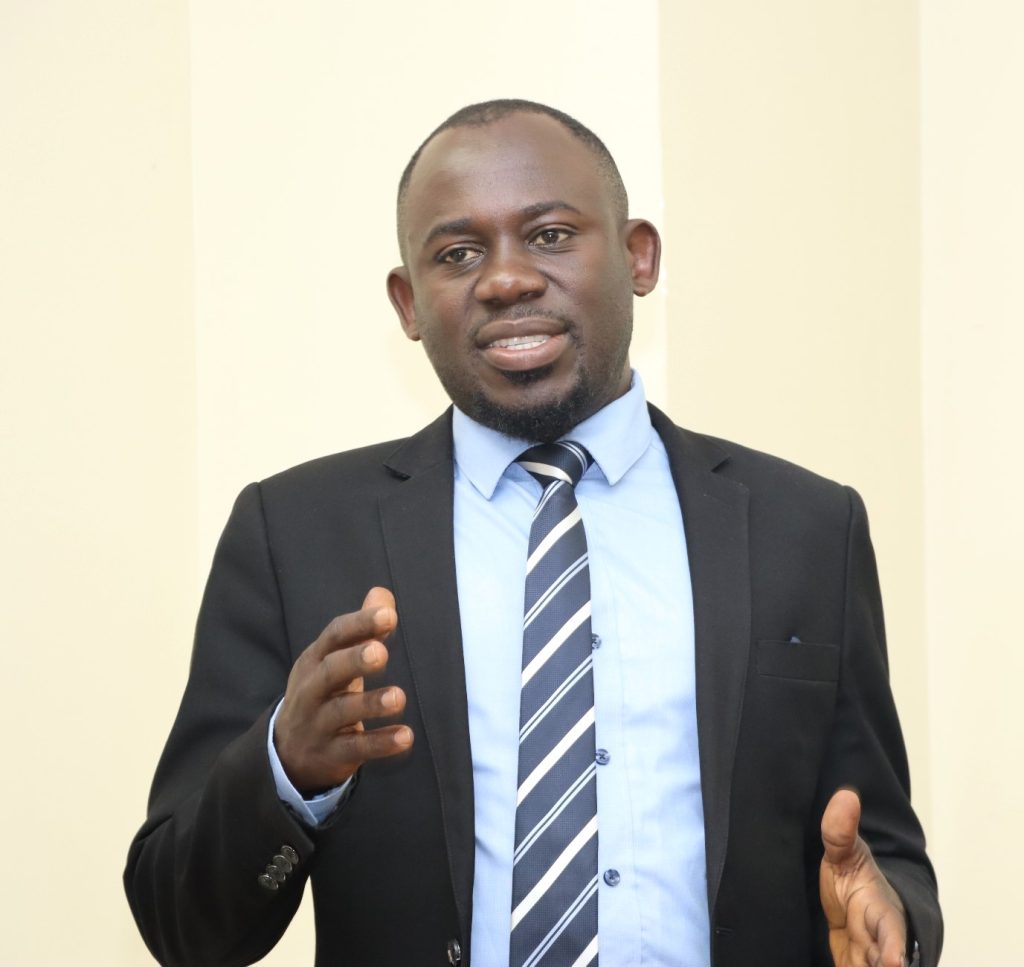
Uganda’s Inclusive Green Economy Engagement Specialist and research fellow Dr. Peter Babyenda said, in 2023, the team went for a study tour in Nepal to learn on the successful community forest management practices that Nepal had employed to increase their forest cover 29% in 1990 to 45% in 2013.
Contrary, Uganda’s forestry cover has decreased from 24% in 1990 to now 13% and, in 2010, the forest cover had further decreased to 9%.
He said, it was deemed appropriate to share the study findings with the ministry’s agencies who hold the country’s natural resources in trust of the people of Uganda.
“We learnt that that once you organise the people, tell them what to do and the importance and gains from the forest, they will take care of the forest, and if you do something detrimental to the forest, you are punished as a community member.
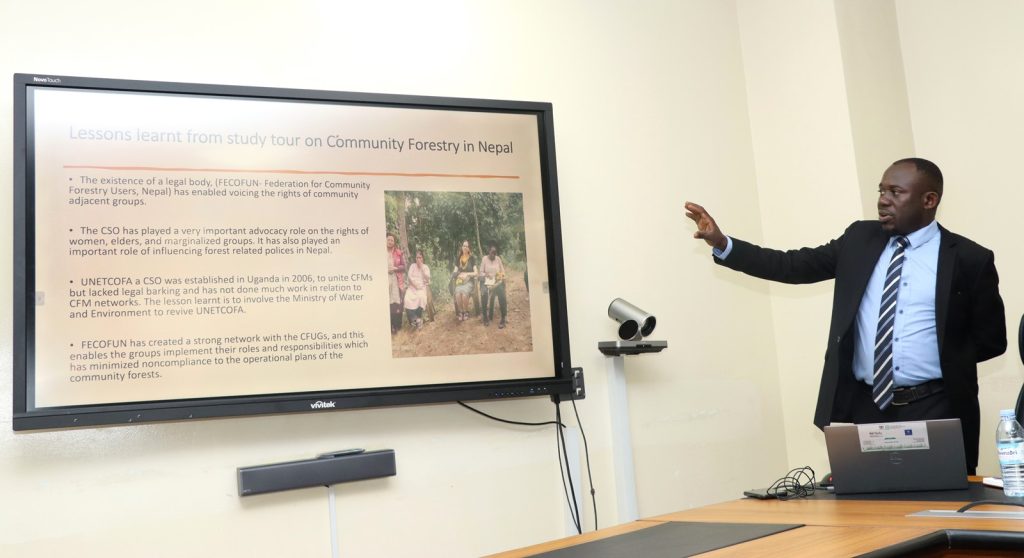
Communities that stay near forests have records of everyone including their photos and they will get to know who does what. They have a well organised inclusive leadership comprising 50% men and female, very transparent with books of accounts that are audited.
We even visited the university that trains leaders so they do capacity building of their leaders together with the department of forestry and wild life and ministry of forestry”, Babyenda explained.
Nepal has about 22,000 community forest user groups benefiting about 2.9million households. The community manages about 2.2million hectares of forest.
Babyenda reported that the community forest management model in Nepal has contributed to forest restoration and made it easy to mobilize the community to ensure that degraded forests are restored. This , he added was evidenced by the increase in the forest cover from 29% in 1992 to the current 45%.
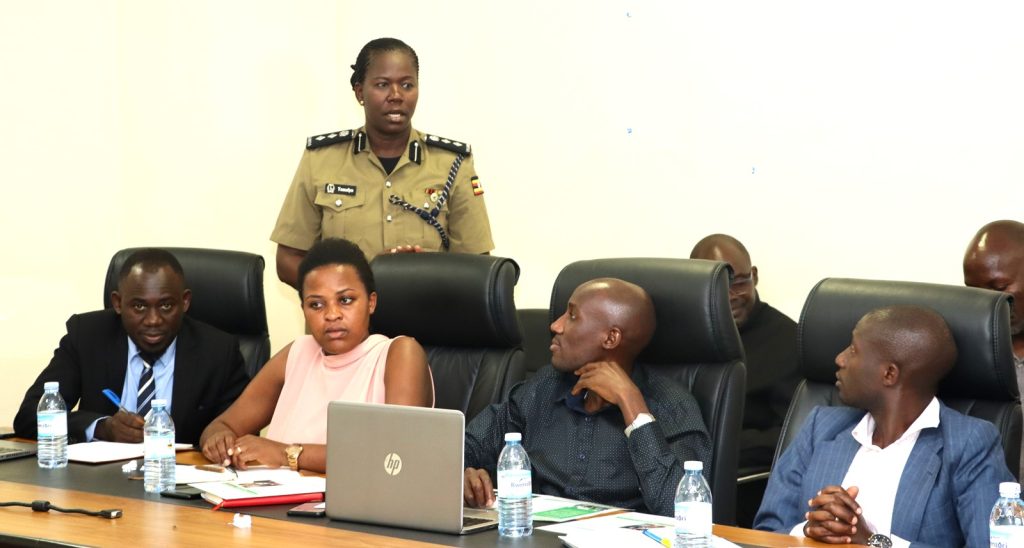
The model according to Babyenda, has contributed to community infrastructure and livelihood benefits because CFUGs are used as a vehicle to community development evidenced by several community development projects seen.
Further, Babyenda explained that not only does Nepal’s model contribute to ecosystem functioning and protection, it has contributed to mitigation and adaptation to climate change largely, due to the maintenance of forests that absorb carbon but also regulates temperature.
“The model contributes to household income generation through the sale of forest products in a sustainable way. The households are aware of the consequences of mismanaging forests and thus utilize them in a sustainable way.
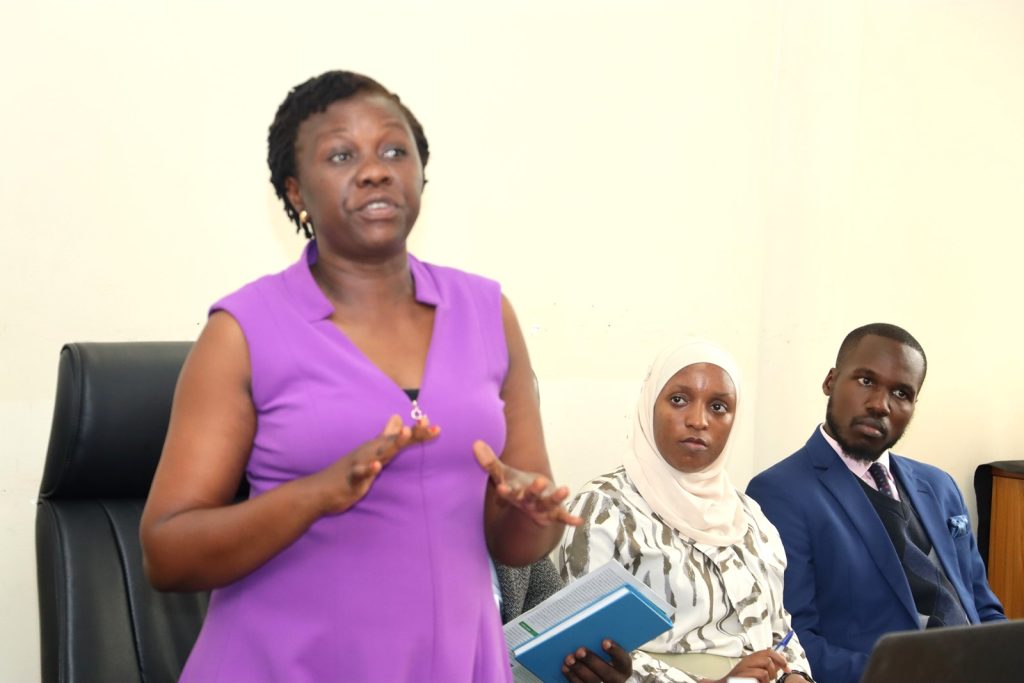
This is commendable and other countries like ours need to take lessons”. Babyenda noted and commended Nepal for the inclusive leadership with at least half of the leadership of the user groups being female.
Key Lessons from Nepal’s Community Forest Management Model for Uganda
The existence of a legal body, (FECOFUN- Federation for Community Forestry Users, Nepal) has enabled voicing the rights of community adjacent groups. The CSO has played a very important advocacy role on the rights of women, elders, and marginalized groups. It has also played an important role of influencing forest related polices in Nepal.
UNETCOFA a CSO was established in Uganda in 2006, to unite CFMs but lacked legal barking and has not done much work in relation to CFM networks. The lesson learnt is to involve the Ministry of Water and Environment to revive UNETCOFA.
FECOFUN has created a strong network with the CFUGs, and this enables the groups implement their roles and responsibilities which has minimized non-compliance to the operational plans of the community forests. Commitment by the CFUGs households to protect, restore and conserve forests has largely been informed by previous calamities like earthquakes and floods which is not the case for Uganda.
Value addition on forest products like timber, fodder and herbs has increased the income and created some jobs for the CFUGs.
Community Forestry in Nepal has thrived on many different models for instance knowledge production and knowledge use in forestry and the presence of homogenous society. Improving livelihoods where forest conservation meets the demands of local communities provides an overall incentive for sustainable conservation including safeguarding essential ecosystem services.
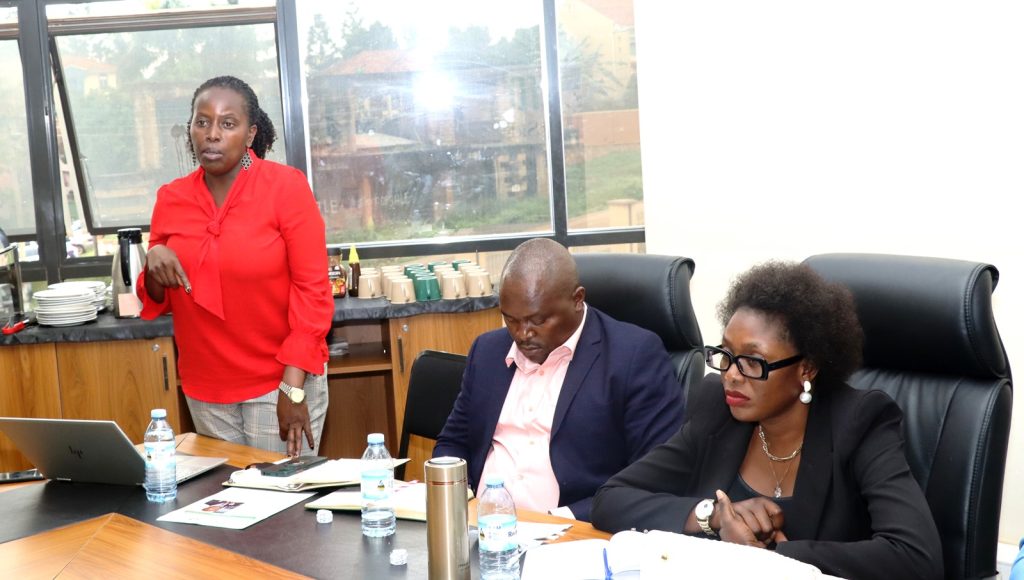
Having a dynamic, diverse, and respected leadership within community groups increases chances of success as is the case for some CFUGs in Nepal. Involvement of women in use of forest resources recognizes the importance of having women represented in decision- making and giving women a voice has allowed them to actively participate in conservation activities.
Benefit sharing through wealth ranking to target the poor for support is very key and can minimize elite capture. In addition, sharing of benefits/ income accrued from sale of forest products in percentages for instance 25% is invested in forest management was a key lesson to learn.
CFUGs coordination with local government to put up infrastructural development like schools or road construction from the income attained from the sale of forest resources was a key lesson learnt.
Community Forestry has contributed to ecosystem functioning through provision of fresh water supply to the households and for agricultural purposes. Most forest adjacent communities in Nepal access piped water from the forest for both domestic uses including watering animals and irrigation of crops. This has enabled conservation of water sources and regulation of waste discharge.
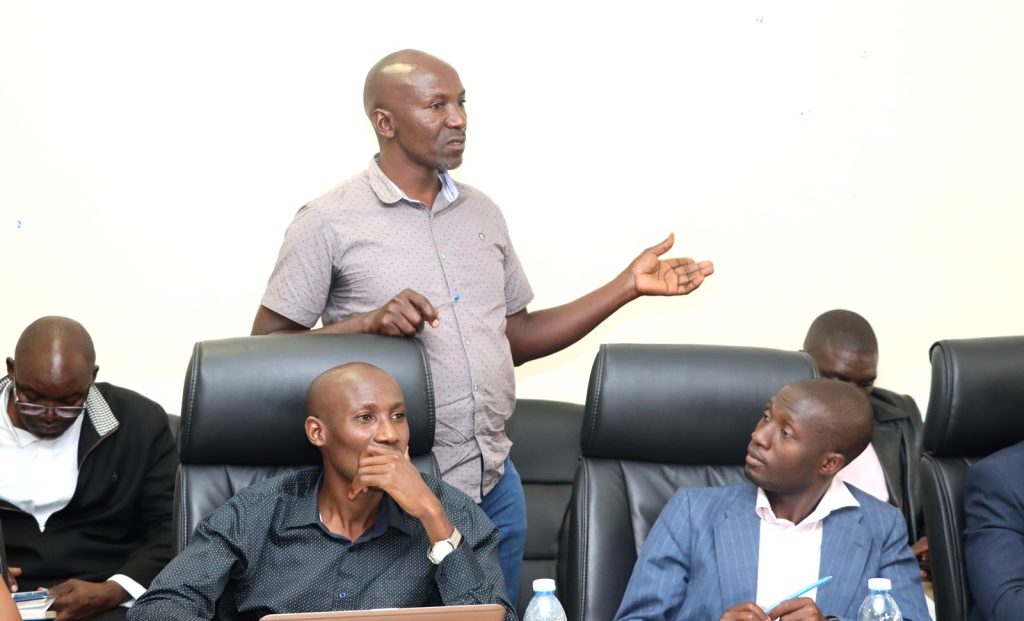
Alternative energy/ biomass source in Nepal is at 60%. People are increasingly using LPGs, electricity, petroleum gas etc. This has decreased fuelwood usage in Nepal. The lesson is that GoU need to reduce costs of gas and electricity to enable less dependency on fuelwood from forests.
Activities implemented during the study tour
Babyenda reported that, activities implemented during the Nepal study tour involved meeting the Federation of Community Forest Users Nepal (FECOFUN) executive members during which it was noted that FECOFUN was founded and legally recognized in July 1995 as a social movement organized which later became a civil society organization. It was formed after the legal recognition of Community Forestry in Nepal in 1992 and realization for the urgency to advocate for the rights of the people. It is established in all the 77 districts in the country with over 22,000 Community Forest User Groups are affiliated to FECOFUN and managing 2.2m ha that is; 25% of the forest cover which is contributed under community forestry of the overall forest cover of 45% with 2.9million H/Hs benefiting from community forestry.
The team also held a meeting with the departments of Forests and Soil Conservation-Nepal and Department of National Parks and Wildlife conservation. The forest management model indicated that Community Forests are part of the National Forests handed over to the traditional users for its conservation, utilization, and management guided by the Forest Act, 2076(2019AD), Forest Regulation 2079 (2023AD) and community guideline 2071.
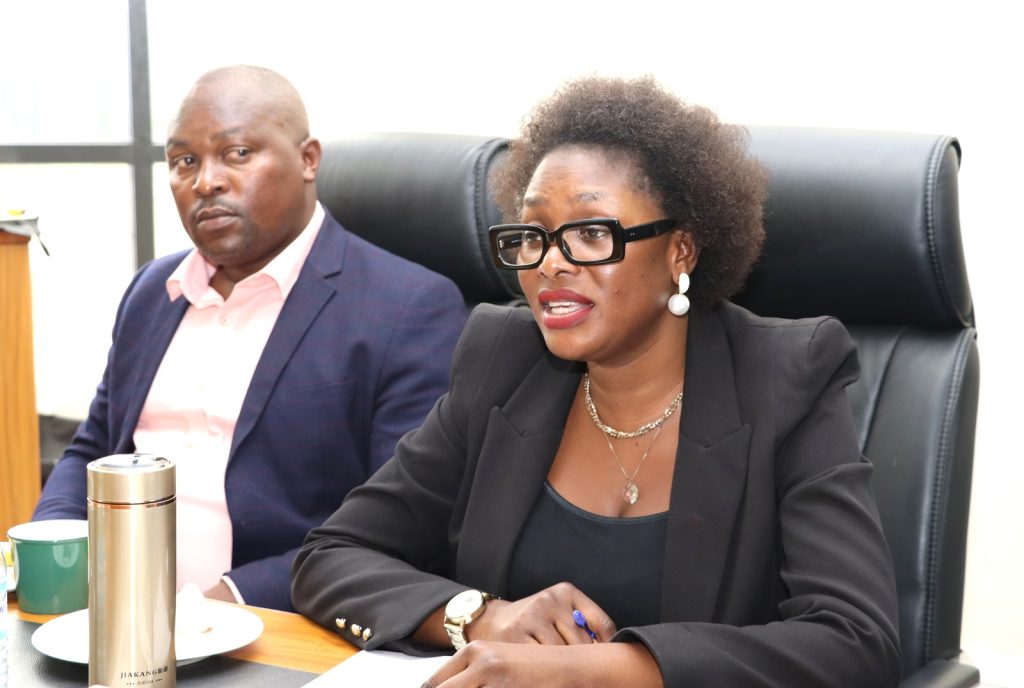
The department guides the CFUG in facilitation done through formation of forest user groups and implementing biological diversity, conservation and climate change adaptation related activities and Legal support through identifying, developing, and managing potential forest areas in accordance with the prevailing laws, rules and policies, Community Forest user group registration and Community Forest handover.
Babyenda said the team made field visits to Kalapani community forest and in Shiba Community Forest and the CFUG members. The Community members mainly utilize forest resources like firewood, fodder, grass, timber, and medicinal plants and performs various roles.
In a meeting at the Institute of Forestry- Nepal with the Dean of forestry and the college staff. Babyenda explained that they shared information on Community forestry on how Community forestry has contributed to forest restoration, community infrastructure and livelihood benefits and ecosystem functioning among others.
Detailed report on study findings is attached.
Jane Anyango is the Communication Officer EfD Uganda
You may like
-


Makerere Launches Scholarly Guide, Calls for Increased Research, Publication and Innovation in Africa
-
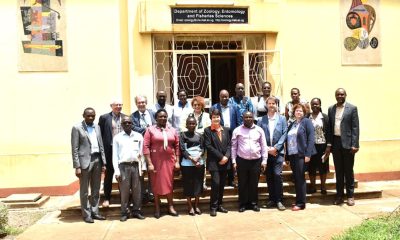

BOKU University Charts New Collaboration Strategies with Mak’s Department of Zoology, Entomology & Fisheries Sciences
-


When Birth Becomes the Most Dangerous Moment, Wanduru & the Work of Making Labour Safer
-


Study Alert: Power in Her Hands; Why Self-Injectable Contraception May Be a Game Changer for Women’s Agency in Uganda
-
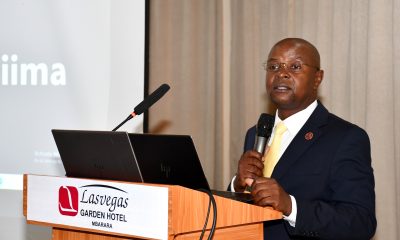

Building Skills for Better Public Investments: PIM Centre Trains Public Sector Economists
-


How Jimmy Osuret Turned Childhood Trauma into Evidence for Safer School Crossings
Business & Management
VC Opens Training for MoKCC Officials on Safeguards in Procurement
Published
7 days agoon
February 10, 2026
The Vice Chancellor of Makerere University, Prof. Barnabas Nawangwe, has officially opened a one-week training for Ministry of Kampala Capital City and Metropolitan Affairs (MoKCC&MA) officials on Integrating and Managing Environmental, Social, Health and Safety (ESHS) Safeguards in Procurement.
The training, conducted by the Public Investment Management (PIM) Centre of Excellence, is funded by the World Bank and brings together officials from KCCA, metropolitan and municipal authorities under the Greater Kampala Metropolitan Area (GKMA) programme, alongside officials from central government ministries and agencies.
Opening the training, Prof. Nawangwe emphasized that safeguarding is a critical pillar of sustainable development and accountable public service delivery.
“If we get things wrong in Kampala, we affect the entire country. Everything done in this city must be well planned, socially responsible, and environmentally sound,” Prof. Nawangwe said.
Drawing from his professional background as an architect, the Vice Chancellor underscored the importance of environmental, social, and safety safeguards, noting that failure to address these issues at planning and procurement stages can lead to loss of life, stalled projects, and massive financial waste. He cited international examples where projects were halted or countries faced global pressure due to neglect of environmental and social considerations.

Prof. Nawangwe commended the World Bank for its continued partnership with Makerere University, particularly in supporting the establishment and growth of the PIM Centre of Excellence, which he described as one of the University’s flagship initiatives with visible national impact.
“I see the work of the PIM Centre in government processes, in reports, and even in Development Committee meetings. That is real impact,” he noted, adding that strengthening in-country capacity through Makerere reduces reliance on costly external consultants.
He reaffirmed Makerere University’s commitment to supporting government through research, training, and policy-relevant knowledge, stressing that continuous professional development is essential in a rapidly changing world.
The Under Secretary, Ministry of Kampala Capital City and Metropolitan Affairs, Ms. Monica Edemachu Ejua, welcomed the training, describing it as timely and necessary given the challenges faced during project implementation, particularly in road construction.
Ms. Ejua, revealed that the training was informed by real and painful experiences, including fatal accidents on construction sites, some of which could have been avoided with stronger environmental and social safeguards.
“Environmental, social, and health and safety issues must never be downplayed. These considerations must begin at procurement planning, not at implementation,” she said.
She highlighted that procurement officers, engineers, planners, accountants, and administrators must all understand safeguards, noting that infrastructure development is inherently multidisciplinary.
“Development must be a blessing to communities—not a burden,” she added.
Ms. Ejua praised Makerere University for hosting the training and the World Bank for supporting government efforts to build institutional capacity, adding that learning does not end at graduation.
World Bank: Strong Country Systems Are Key to Development Impact
Presenting on behalf of the World Bank, Ms. Christine Kasedde, a Senior Environmental Specialist, explained that the training is part of a broader effort to strengthen country systems for managing environmental and social risks in development projects.
She noted that while the World Bank has committed over USD 4 billion to projects in Uganda, weak safeguards and capacity constraints have affected implementation and disbursement.

“Environmental and social safeguards are legally binding commitments. When they are not addressed properly, issues escalate to the highest levels of government,” Ms. Kasedde explained.
She outlined how the collaboration with Makerere University has led to the development of several short professional courses across CoBAMS, the College of Agricultural and Environmental Sciences (CAES), and the College of Humanities and Social Sciences (CHUSS). These courses address gaps in social risk management, environmental sustainability, health and safety, climate risk, and procurement.
Ms. Kasedde also revealed that the partnership has culminated in the establishment of an Environmental and Social Sustainability Centre at Makerere University, which will serve as a hub for training, research, advisory services, and independent assessments.
Procurement as a Tool for Sustainable Development
Representing the Public Procurement and Disposal of Public Assets Authority (PPDA), Ms. Mercy Kyoshabire, Director for Procurement and Disposal Capacity Building, emphasized that public procurement accounts for over 60 percent of government expenditure and must therefore be leveraged as a tool for sustainable development.
She reminded participants that environmental, health, and social safeguards have been embedded in standard bidding documents since 2019, urging procurement professionals to integrate sustainability throughout the procurement cycle.
“Sustainability is about the three Ps—People, Profit, and Planet. Procurement decisions made today should not compromise future generations,” she said.
Ms. Kyoshabire reaffirmed PPDA’s commitment to collaboration and capacity building, particularly with centres of excellence such as Makerere University.
A Model of Interdisciplinary Collaboration
The training also drew strong support from the Principal of CAES, represented by Dr. Patrick Byakagaba and, Principal CHUSS, Prof. Helen Nkabala, who emphasized Makerere University’s shift away from siloed approaches toward interdisciplinary collaboration in addressing national development challenges.

Prof. Edward Bbaale, Principal Investigator of the PIM Centre of Excellence, noted that the training responds to critical gaps identified at the pre-investment and procurement stages of public projects, particularly as Uganda pursues an ambitious growth agenda amid climate and social risks. Dr. John Sseruyange, the manager of PIM Centre of Excellence said, the week-long training is expected to strengthen the capacity of KCCA and GKMA implementing entities to integrate and manage environmental, social, health, and safety safeguards across the procurement and project implementation cycle, ultimately improving service delivery and protecting communities.
Business & Management
Building Skills for Better Public Investments: PIM Centre Trains Public Sector Economists
Published
1 week agoon
February 9, 2026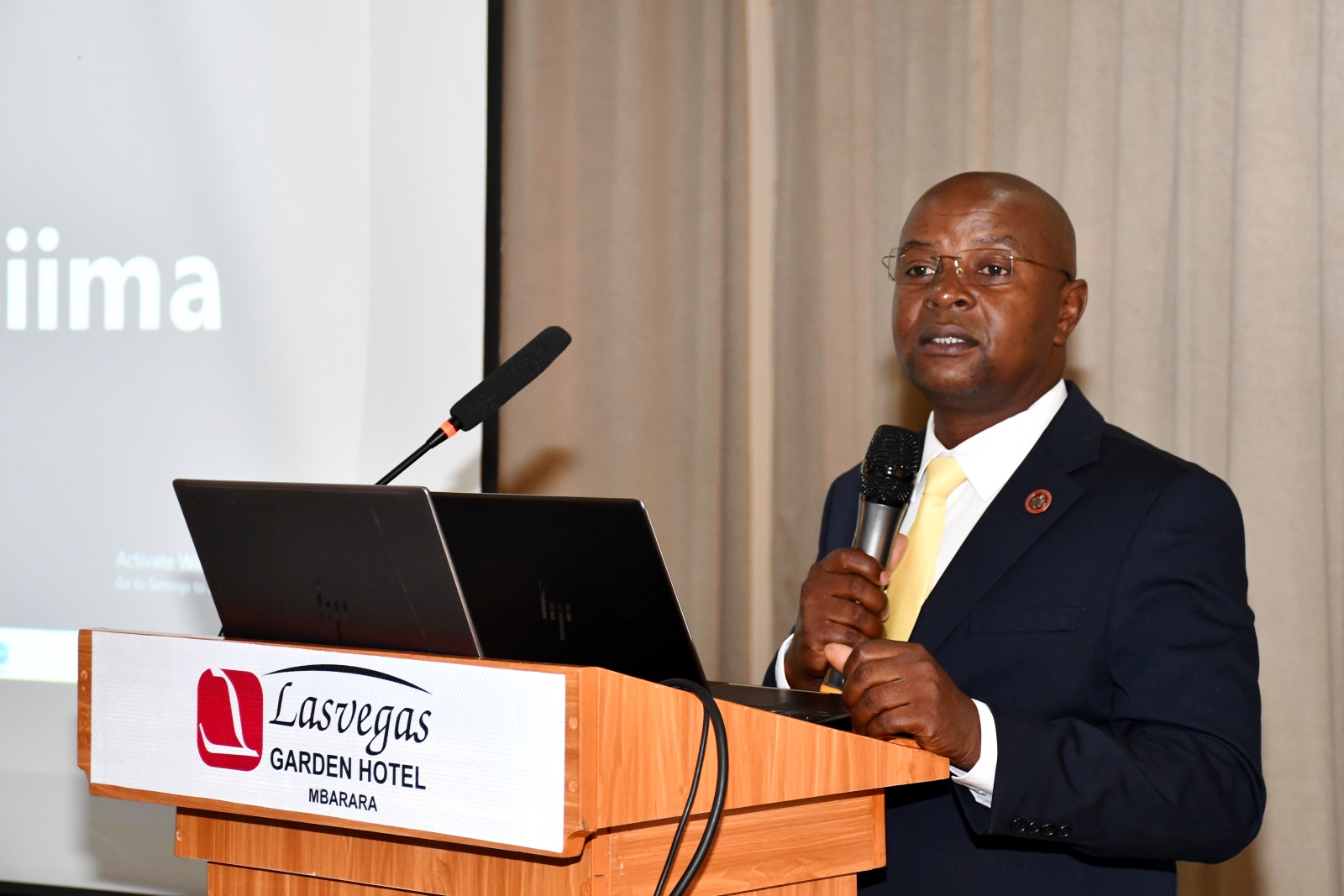
Away from the bustle of the city, in the calm setting of Mbarara, over 30 public service economists have gathered with a shared purpose: to strengthen the skills that shape how public resources are invested and how national development priorities are realised.
The two-week executive training on Economic Appraisal and Stakeholder Analysis, organised by the Public Investment Management (PIM) Centre of Excellence at Makerere University, officially commenced this week, bringing together public officers from across government, academia, state agencies, and civil society. At its core, the programme seeks to answer a fundamental question—how can Uganda ensure that every shilling invested in public projects delivers maximum economic and social value?
The training draws expertise from Makerere University, Cambridge Resources International (CRI), the Ministry of Finance, Planning and Economic Development (MoFPED), and the National Planning Authority (NPA), reflecting a strong partnership between academia, policy makers, and development practitioners. Participants represent a wide cross-section of institutions, including the Ministry of Internal Affairs, Uganda Tourism Board, MoFPED, Kiira Municipality, Wakiso Local Government, Kyambogo University, Makerere University, UEDCL, UNCST, UDC, the Uganda Police Force, Parliament of Uganda, and several civil society organisations.
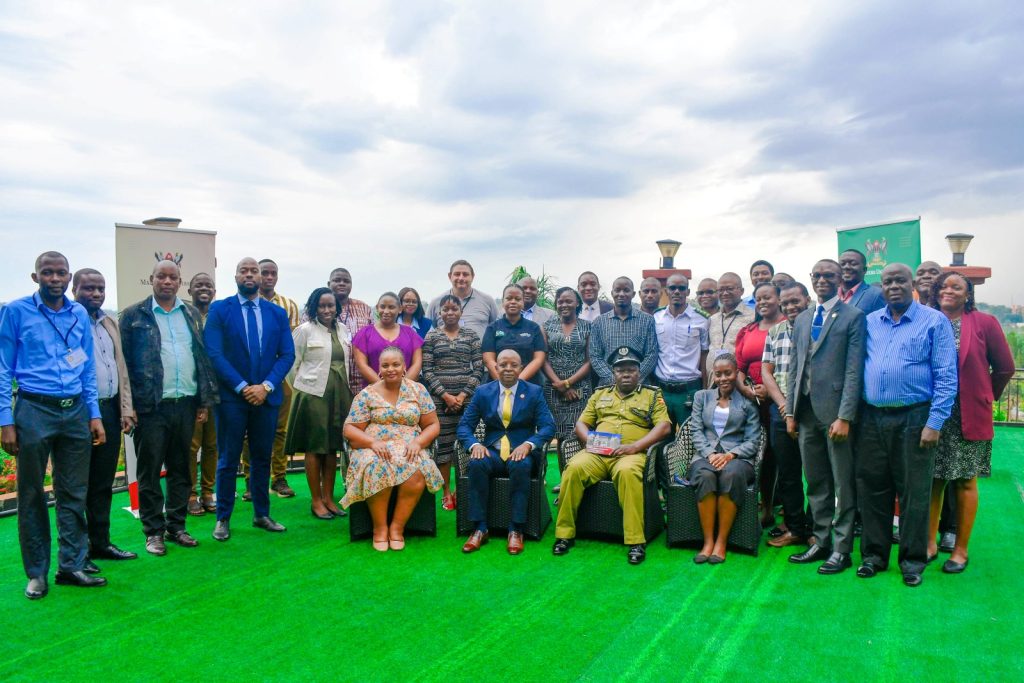
Opening the programme on behalf of the Permanent Secretary and Secretary to the Treasury, Commissioner PAP, Ms. Gertrude Basiima, explained that the choice of venue was intentional. Holding the training away from the city, she noted, allows participants to concentrate fully and engage more deeply with the intensive content. Previous trainings held in similar settings, she added, had yielded positive results.
Ms. Basiima highlighted that the training is part of a long-standing strategic partnership between the Ministry of Finance and the PIM Centre of Excellence at Makerere University, housed in the School of Economics. Established in 2016, the collaboration was informed by diagnostic assessments that revealed persistent gaps in Uganda’s public investment management system—particularly in project identification, appraisal, selection, and implementation.
“These gaps are not merely technical,” she observed. “They determine whether public investments truly transform communities or fall short of their promise.”
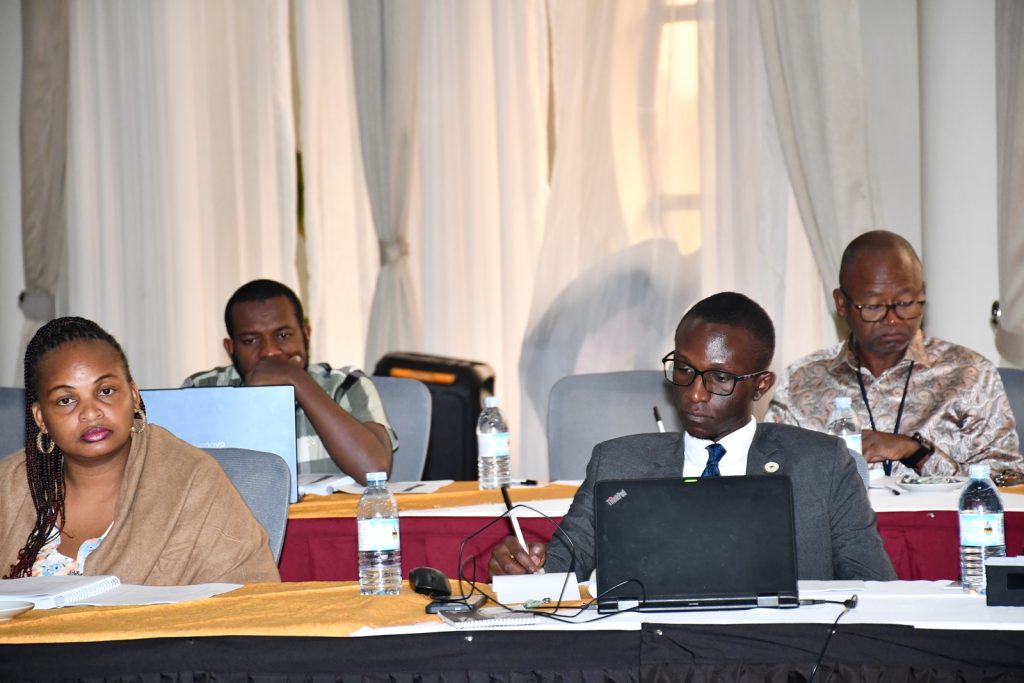
The training builds on earlier modules in financial appraisal, equipping participants with advanced competencies in economic appraisal and stakeholder analysis. Through practical case studies and hands-on exercises, participants will explore demand forecasting, economic pricing, and sector-specific appraisal techniques applicable to energy, water, transport, and agriculture. By the end of the programme, participants are expected to competently conduct cost-benefit analyses and assess whether proposed projects merit inclusion in the national budget.
Ms. Basiima emphasised that while many feasibility studies are prepared by consultants, public officers must be able to interrogate, quality-assure, and defend these studies before decision-making bodies such as the Development Committee. The training, she said, is designed to position participants to do exactly that.
For Prof. Edward Bbaale, Director of the PIM Centre of Excellence, the training comes at a critical moment in Uganda’s development journey. With the country implementing ambitious programmes under the National Development Plan IV and the Ten-Fold Growth Strategy, public investment has become a central driver of socio-economic transformation.
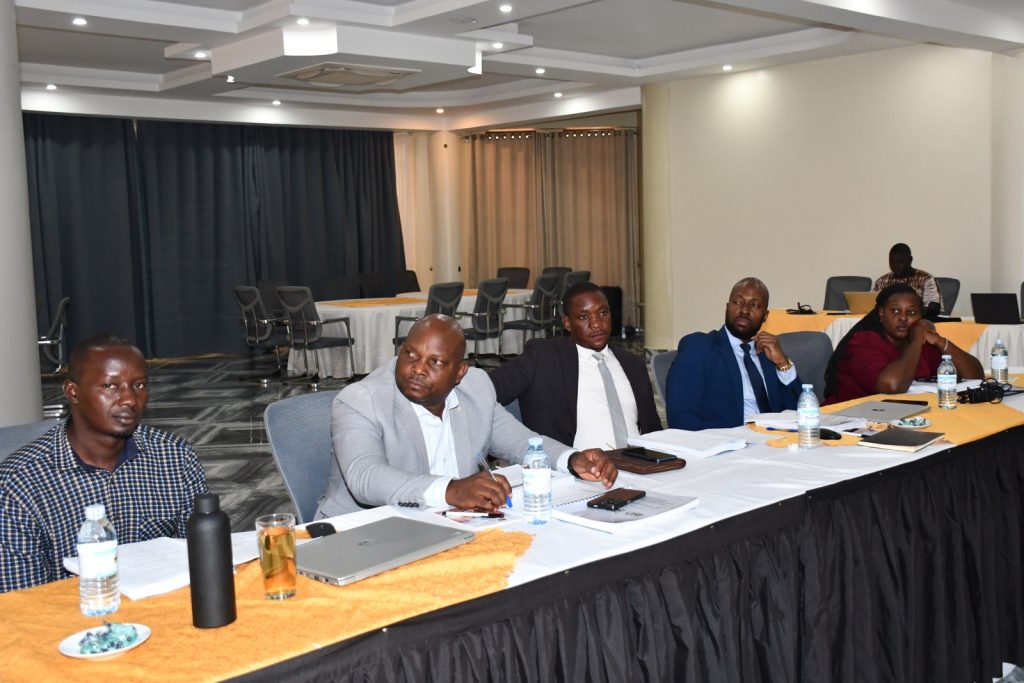
Across the country, Uganda is investing heavily in transport infrastructure, energy generation and transmission, irrigation systems to respond to climate change, industrial parks, digital infrastructure, education, and health facilities. Yet, as Prof. Bbaale cautioned, the success of these investments depends less on the volume of funding mobilised and more on the quality of project preparation and appraisal.
“Economic appraisal must be seen not as a box-ticking exercise, but as a strategic tool for national transformation,” he said. “It enables government to prioritise projects with the highest economic and social returns, minimise fiscal risks, and ensure value for money.”
Prof. Bbaale also underscored the strength of the multi-institutional partnership supporting the programme, noting that it blends global best practices with Uganda’s policy realities. At the conclusion of the training, participants will receive a tripartite certificate jointly issued by Makerere University, the Ministry of Finance, and Queen’s University, recognising their enhanced expertise in public investment management.
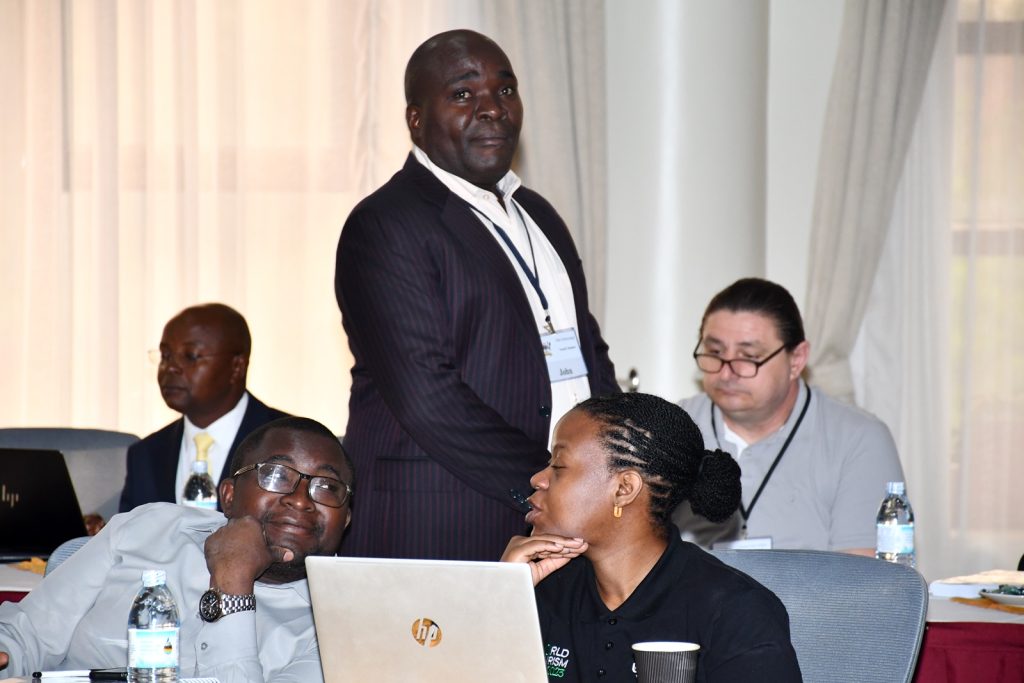
For the Manager of the PIM Centre of Excellence, Dr. John Sseruyange, the training is as much about mindset as it is about technical skills. He encouraged participants to remain disciplined, engage fully, and build professional networks that will endure long after the two weeks in Mbarara.
“The skills you gain here will not only strengthen you as individuals,” he noted, “but will directly influence the quality of public investment decisions made across Uganda.”
As the sessions unfold over the next two weeks, the training stands as a testament to Makerere University’s enduring contribution to national development—building capacity, shaping policy, and preparing public servants to make decisions that drive sustainable growth, economic resilience, and shared prosperity for all Ugandans.
Beyond training, the PIM Centre of Excellence continues to play a broader national role through research and policy advisory services. The Centre has supported the review of Development Committee guidelines and convened national dialogue through its annual Public Investment Management Conference, including last year’s conference themed “Overcoming Implementation Barriers in Public Investment Management for Fiscal Sustainability.”
Business & Management
Dr. Aisha Nanyiti is IEA’s Featured Economist for Jan 2026
Published
1 month agoon
January 8, 2026By
Mak Editor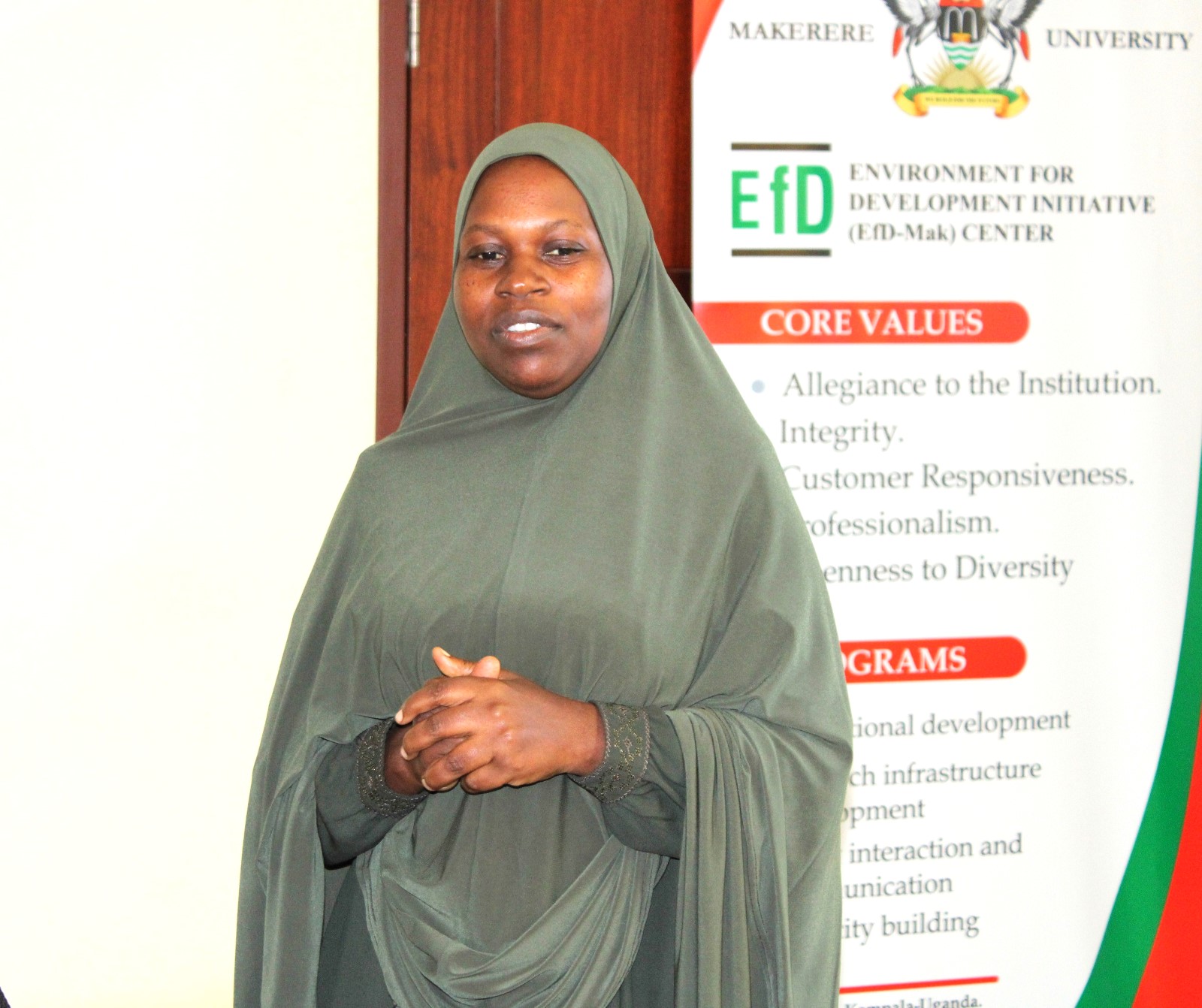
Dr. Aisha Nanyiti is a Lecturer at Makerere University’s School of Economics. She holds a PhD in Development Economics from Wageningen University, The Netherlands. Her research focuses on impact evaluation, causal inference, and behavioural economics, with expertise in Randomized Control Trials (RCTs), Lab‑in‑the‑Field experiments, and survey-based causal analysis. Aisha studies labour and financial markets, gender and women’s empowerment, poverty, and clean energy adoption, bridging rigorous evidence with real-world policy impact. She is also a Research Fellow at the Environment for Development Initiative (EfD‑Mak Centre), contributing to inclusive development and evidence-based policy in East Africa. She is the International Economic Association (IEA)’s featured economist for January 2026.
Trending
-

 General2 weeks ago
General2 weeks agoCall for Applications: Admission to Postgraduate Programmes 2026/2027
-

 Natural Sciences2 weeks ago
Natural Sciences2 weeks agoSimon Mungudit: Mak’s Best Performing Male Science Student & Rising Star in Petroleum Geoscience
-

 Agriculture & Environment2 weeks ago
Agriculture & Environment2 weeks agoFrom Adversity to Excellence: The Inspiring Journey of Makerere’s Best Science Student, Esther Ziribaggwa
-

 General7 days ago
General7 days agoAptitude Exam (Paper 1) Results for the Mature Age Entry Scheme 2026/2027
-

 Health2 weeks ago
Health2 weeks agoEU Earmarks Shs19.8bn for 15 Joint PhD Scholarships in Health, Environment Research
